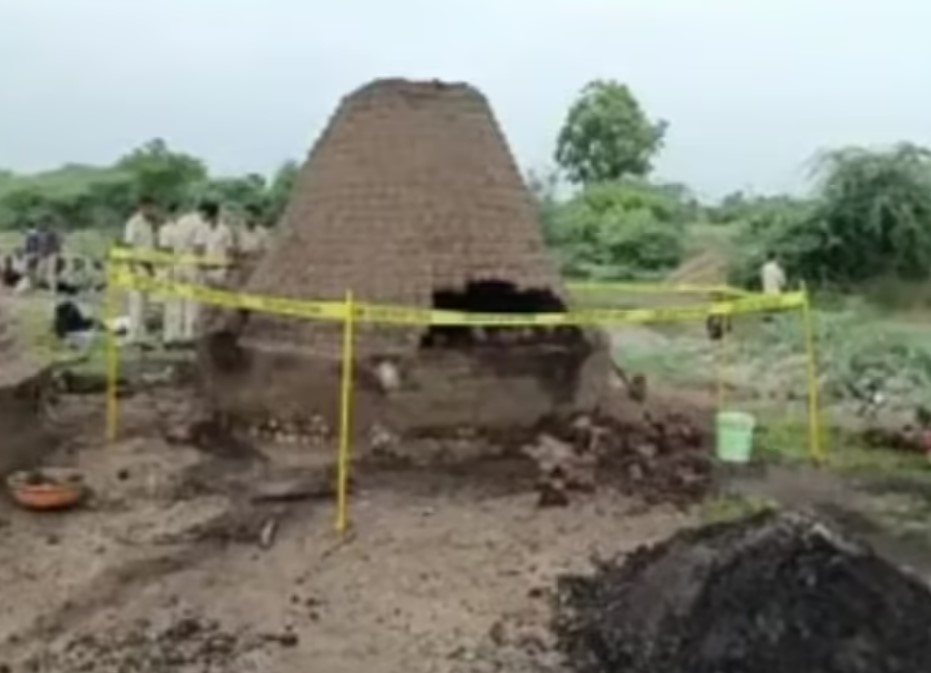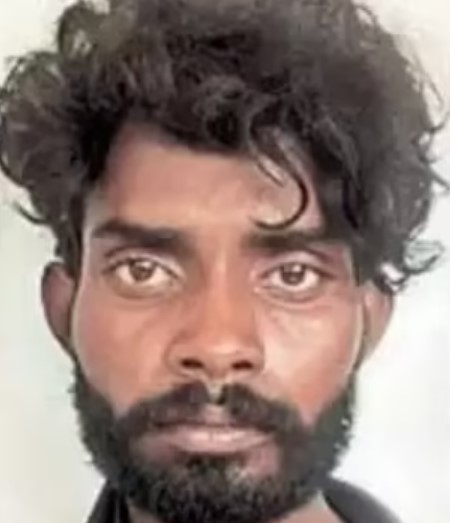TWO brothers who raped a 14-year-old girl before burning her alive have been sentenced to death in a landmark case in India.
The vile monsters, identified as Kalu, 25, and Kanha Kalbeliya, 21, were found guilty on Saturday of rape and murder in the horrific incident that took place in August last year.
The chilling case has rocked India, with Judge Anil Gupta calling it the "rarest of the rare".
The victim's distraught parents, who were present during the hearing, said: "We have got justice."
Her mother said: "My daughter got justice today. I couldn't eat properly in the last few months. Now I will have food with peace."
The horror killing happened last year after the girl - who has not been named - was reported missing by her family after going out to work in a field.
more world news
But the girl's brother - who went out to search for her - grew suspicious after he saw a burning furnace near their home, which caught his attention.
Cops investigating the case told the Times of India: "The girl's brother saw several charcoal furnaces set up by the people of a nomadic community.
"Smoke billowing from one of the kilns drew his attention and made him suspicious as they were not active in the evening.
"He rummaged through the kiln with a stick and sifted through the charred items."
Most read in The Sun
The heartbroken boy found his sister's bracelet, one he had given her just days before the indescribable horror.
Several body parts and charred clothing were recovered from the kiln by specialist forensic experts, while other remains were found discarded in the surrounding area.
It was concluded the young girl had tragically been set alight whilst she was still alive after the evil killers doused her in flammable liquids.
The distressing case caused widespread outrage across the country as many people took to the streets to protest against rising numbers of rape cases in India.
Last year, cops were accused of handing over two women to a large armed mob in Manipur before they were paraded down the street naked in a disturbing video.
The Supreme Court stated the police had allegedly given the young victims to hoards of men, who later sexually abused them.
Distressing footage showed the two women being dragged into a field after being groped by the brutes.
The Supreme Court slammed the Manipur government and Indian state police.
The court said: "For two months there has been a total breakdown of law and order in Manipur, there is no law and order left.
"Police have no control over the situation, looks like for two months police had made no arrests, and had not recorded statements."
The extreme violence inflicted on the young victims by hundreds of men sparked protests across the state.
The Indigenous Tribal Leaders’ Forum (ITLF) condemned the attack on the woman as “sickening” and also claimed one woman was gang raped.
Prime Minister Narendra Modi said the incident had "shamed India" and that "no guilt will be spared".
He said: "I assure the nation, the law will take its course with all its might.
Read More on The Sun
Inside India's sexual violence epidemic
Analysis by Sayan Bose, Foreign News Reporter
The world's largest democracy is plagued by sexual violence - especially against women - and rape is the fourth most common crime that is reported in India.
According to official statistics, more than 30,000 cases were registered in the country in 2021 - an average of 80 cases in a single day.
And this is when most of the rape incidents go unreported because the victims fear retaliation and humiliation, something seen very commonly in India.
Various human rights groups and NGOs say that women who belong to the lowest level of India's centuries-old caste hierarchy system are most vulnerable to rape and other forms of physical and sexual violence.
They believe men from the dominant caste groups often attack these women to re-establish repressive gender rules.
However, India's struggle with rape also stems from the country's extremely patriarchal society which often gives more importance to men.
The gender issues caused by this are believed to be one of the major reasons behind such atrocious acts against women.
While this is absolutely true in most of the rural areas in India - sadly - it is also the case in urban cities and developed areas in the country.
The biggest example of this would be the 2012 Delhi Gang rape and murder - commonly known as the Nirbahaya Case - where a 22-year-old woman travelling in a bus with her partner was beaten, gang-raped and tortured by six men, including the bus driver.
While she was rushed to one of the biggest hospitals in India - and was later airlifted to Singapore - the woman later died of the severe injuries that were inflicted by the attackers.
The main attacker among the six - who inflicted the fatal wound to the girl - boldly confessed he does not regret doing what he did.
This was the case that shook the nation - so much so that millions of people took to the public streets in New Delhi to protest against the weak rape laws.
Fourteen years since the incident, not much has changed in the country that still reports an overwhelming number of rape cases every single day.
"What happened with the daughters of Manipur can never be forgiven."
Manipur Chief Minister Biren Singh: "A thorough investigation is currently underway and we will ensure strict action is taken against all the perpetrators, including considering the possibility of capital punishment."



















